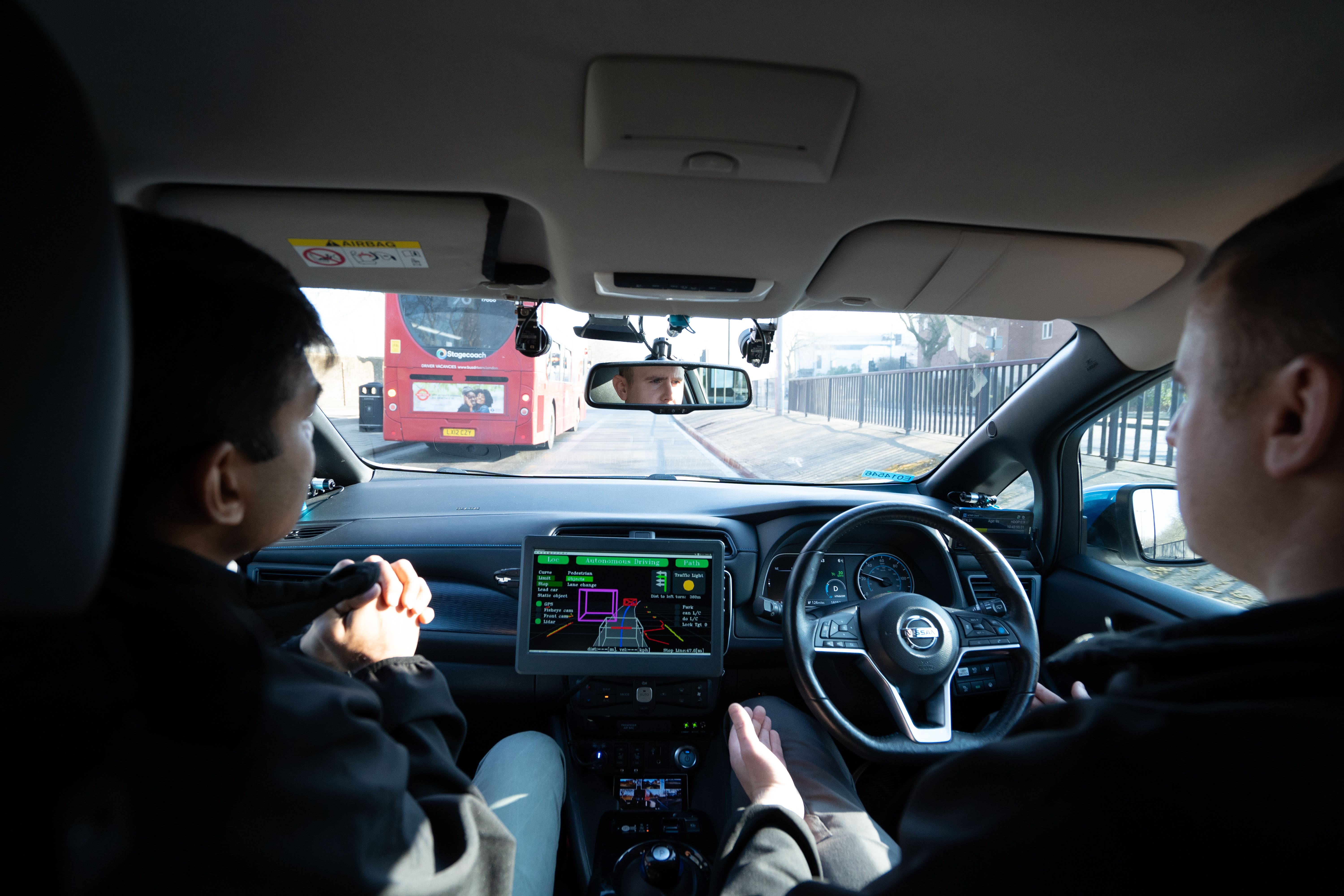Self-driving cars: Government rejects claim its safety ambitions are ‘weak’
The Department for Transport said ‘setting too high a level of ambition’ could stifle the introduction of the technology.

The Government has rejected claims by MPs that its proposed safety aspirations for self-driving cars are “too weak”.
In its response to a Transport Select Committee report, the Department for Transport (DfT) said its proposed aim of autonomous vehicles being as safe as a “competent and careful human driver” is an “appropriate ambition at this time”.
That type of motorist is “safer than the average human driver”, it claimed.
The DfT added: “Setting too high a level of ambition could have the effect of stifling the introduction of the technology and needlessly delay near-term safety improvements.”
A more fleshed out, stronger threshold should be set out
In its report published in September, the committee warned it is “not a given” that self-driving vehicles will prove safer than those operated by humans.
It described the DfT’s safety objectives as “too weak and too vague”, adding: “The Government should set a clearer, more stretching threshold.”
Earlier this month, the Government announced it will introduce legislation to regulate the use of self-driving vehicles in the UK.
Conservative MP Iain Stewart, who chairs the committee, said: “Britain’s cutting edge self-driving vehicles sector was crying out for new legislation, so we applaud the Government for staying ahead of our international competitors and bringing forward the Automated Vehicles Bill so that this British success story stays on track.
“We remain concerned that the Government’s ambition for how safe self-driving vehicles should be may end up being too weak and too vague.
“A more fleshed out, stronger threshold should be set out.”
Steve Gooding, director of motoring research charity the RAC Foundation, said: “Finding a legally robust way to set a clear and unambiguous threshold for safety is notoriously difficult, hence health and safety legislation has adopted the principle that safety risk should be ‘as low as reasonably practicable’.
“When we put our lives in the hands of automated machinery we expect it to perform to the highest standards of safety.
The Bill gives a good legal framework and is fundamental to help progress toward safer assisted and ultimately autonomous driving
“We’ll be watching keenly to see whether Parliament agrees that the Government’s proposed approach goes far enough.”
AA president Edmund King said: “The Bill gives a good legal framework and is fundamental to help progress toward safer assisted and ultimately autonomous driving.
“The proposed legislation is based on a comprehensive three-year study by the Law Commission.
“In the meantime, many drivers are benefiting from advanced safety technology, such as automatic emergency braking, lane assist and collision avoidance, which are now included on many cars and not just the top-end models.”
Bookmark popover
Removed from bookmarks